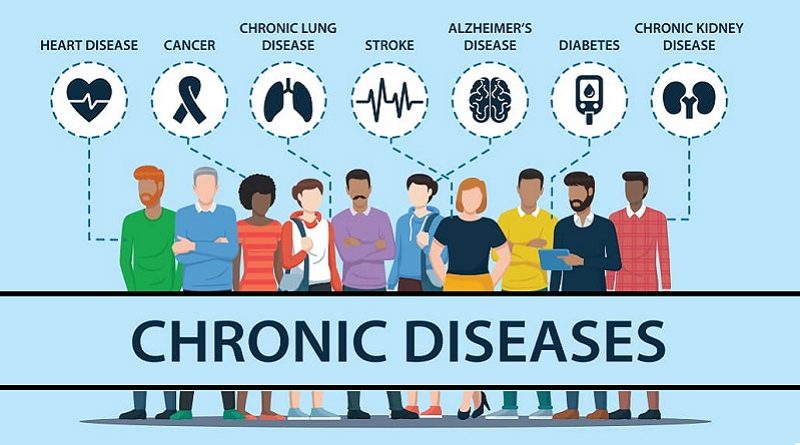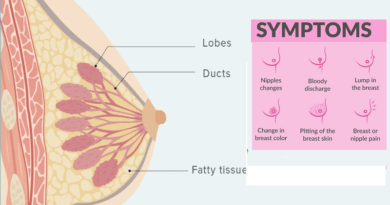Common Chronic Diseases: Top 10 and Their Management
Top 10 Common Chronic Diseases
Diabetes, one of most common chronic diseases:
- This is a very common chronic disease that affects the body’s ability to regulate blood sugar levels. Management strategies include lifestyle changes including exercise and a healthy diet, along with medications to control blood sugar levels.
Heart Disease:
- This refers to a range of conditions that affect the heart, including coronary artery disease and heart failure. Management strategies may include medications, lifestyle changes such as a heart-healthy diet and regular exercise, and medical procedures such as bypass surgery or stenting.
Arthritis:
- This chronic condition causes joint inflammation and pain, affecting millions of people worldwide. Management strategies may include medication, physical therapy, and lifestyle changes such as exercise and weight loss.
Chronic Obstructive Pulmonary Disease (COPD):
- This progressive lung disease affects millions of people worldwide.
- “Chronic obstructive pulmonary disease (COPD) is a chronic disease that includes two main conditions; emphysema and chronic bronchitis. COPD makes it hard to breathe and causes shortness of breath, coughing, and chest tightness.” (SOURCE)
- Management strategies may include medications, oxygen therapy, and lifestyle changes such as quitting smoking.
Asthma:
- It’s a chronic respiratory condition that causes the narrowing of the airways, leading to breathing difficulties.
- Management may include inhalers, avoidance of triggers, no smoking, and regular monitoring.
Depression:
- A mental health condition that affects millions of people worldwide and can have a significant impact on daily life.
- Management includes therapy, medication, and lifestyle changes such as exercise and a healthy diet.
Chronic Kidney Disease:
- A condition affecting the kidneys’ ability to function properly, leading to a range of symptoms and complications.
- Management typically includes medication, dialysis, and lifestyle changes such as limiting salt and protein intake.
Osteoporosis:
- A condition caused by many factors including calcium and vitamin D deficiency. It causes bone loss and increases the risk of fractures.
- Management includes medications, calcium and vitamin D supplements, and lifestyle changes such as regular exercise.
Alzheimer’s Disease:
- This is a progressive neurodegenerative disease that affects memory and cognitive function.
- It can be managed by medications, cognitive therapy, and lifestyle changes such as regular exercise and a healthy diet.
Cancer:
- This refers to a range of conditions that involve abnormal cell growth. It can affect any part of the body.
- Management of cancer depends on its type, it may include surgery, radiation therapy, chemotherapy, and targeted therapies. Regular screening and early detection are also important for successful management.
Summary
This article explores the top 10 common chronic diseases including diabetes, heart disease, and arthritis. Managing chronic diseases requires a multi-approach that includes medication, lifestyle changes, and ongoing monitoring and care. By consulting a doctor and following management strategies, patients with chronic diseases can achieve better health outcomes and improved quality of life.
Sources for further readings
[1] https://www.ncoa.org/article/the-top-10-most-common-chronic-conditions-in-older-adults/
[2]https://ralna.org/preventing-managing-the-10-most-common-chronic-diseases/
[3] https://www.cdc.gov/chronicdisease/resources/infographic/chronic-diseases.htm
[4] https://www.bidrx.com/blog/chronic-disease-medications/most-common-chronic-diseases-in-america/
[5] https://healthitanalytics.com/news/addressing-chronic-disease-with-population-health-management-strategies
[6] https://www.cdc.gov/chronicdisease/index.htm




